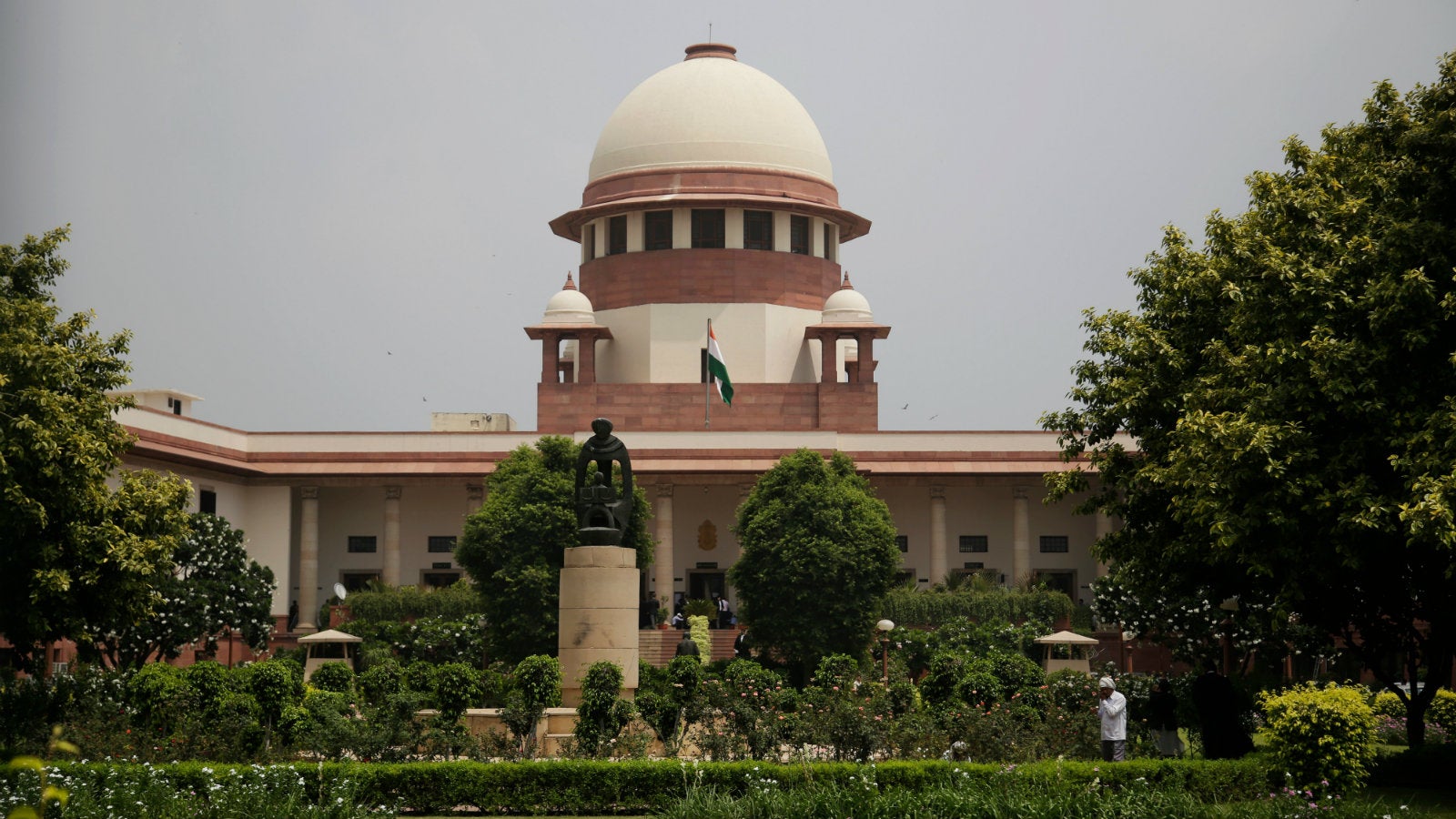India’s supreme court is getting its seventh female judge in nearly 70 years
India’s supreme court is getting another female judge.


India’s supreme court is getting another female judge.
On April 25, the Indian government reportedly cleared the appointment of senior advocate Indu Malhotra to the supreme court. The 61-year-old is only the seventh female judge to serve in the nation’s highest court since the institution was established in 1950. She’s also making history as the first female lawyer to be directly appointed, rather than being promoted from the high court.
Since August 2014, justice R Banumathi has been the only woman among the 25 sitting supreme court judges in India. And when Malhotra is sworn in later this week, it will be only the third time that the court has had more than one woman serving simultaneously.
This follows decades of male domination at India’s apex court. Since 1950, up to 229 judges have been appointed to the supreme court—only six women among them. Its first female judge was justice Fathima Beevi, appointed in 1989, nearly 40 years after the court was set up.
As a result, some of the most important supreme court decisions, including those that directly affect the lives of Indian women, have often been taken by male judges. Last year, for instance, neither the bench that banned the instant triple talaq divorce nor the one that upheld privacy as a fundamental right featured a female judge.
In a country rife with gender inequality, it is frustrating that the court tasked with guaranteeing citizens’ rights is so overwhelmingly male-dominated. So Malhotra’s appointment signifies incremental progress.
A second-generation lawyer
Born in 1956 in Bangalore (now Bengaluru), Malhotra began practicing law in 1983, following in the footsteps of her father, Om Prakash Malhotra, a senior advocate in the supreme court. After studying law at Delhi University, she specialised in arbitration, going on to represent institutions such as the Securities Exchange Board of India and the Indian Council for Agricultural Research.
In 2007, Malhotra became only the second woman to be designated senior advocate of the supreme court, 30 years after the iconic Leila Seth was given the honour.
Over the past 35 years, Malhotra has worked on several high-profile cases. A member of the SaveLIFE Foundation’s board of trustees, she represented the NGO in a case that ultimately led to the Indian government banning trucks from carrying protruding rods or poles. This practice had led to thousands of casualties in road accidents across the country. She also reportedly got the court to issue the landmark decree that unmarried mothers could have sole legal guardianship of children without the father’s consent.
As the apex court goes on to handle more cases that could dramatically affect millions of ordinary Indians, be it Aadhaar or same-sex relationships, Malhotra’s presence can only be a good thing.